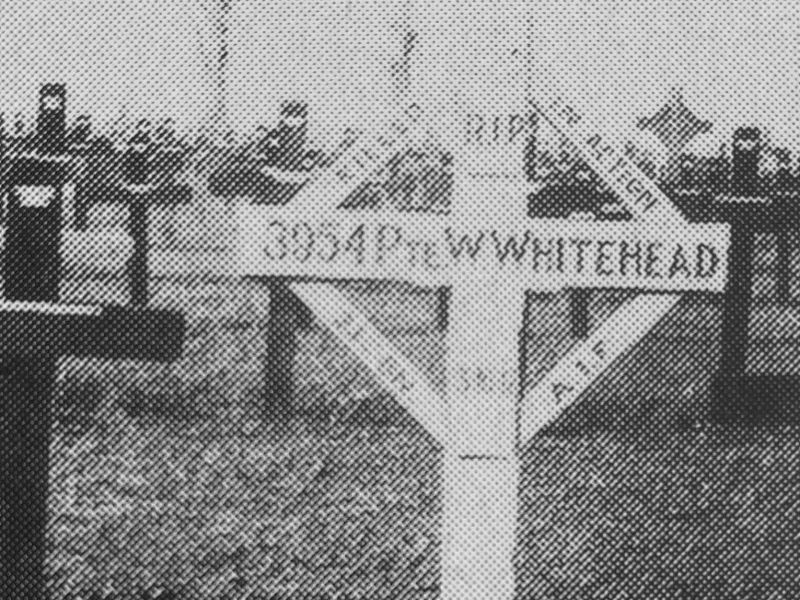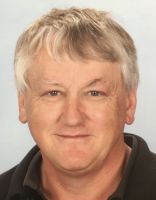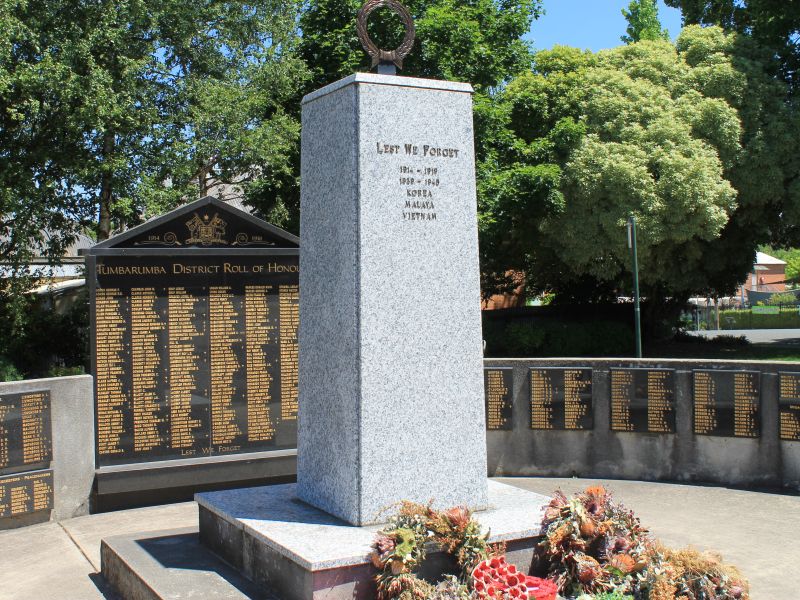Wilfred David Whitehead
Wilfred David Whitehead was born on the 23rd of January, 1892, at the Lighthouse, Tooma, within the parish of Greg Greg, NSW. He was one of twelve children, and the second youngest of William and Jane (née Simpson) Whitehead.
In late April of 1914, Wilfred had a close call with death. According to the Thursday 23rd April, 1914, edition of the Corryong Courier:
“MOTOR CAR - Mr Wilfred Whitehead sustained a serious loss on Monday evening, when his motor car caught fire between the Butter Factory and the town, and was completely destroyed. The cause of the mishap was the backfiring of the engine, and as the petrol tank was full there was no chance of saving the car. We understand that the car was insured for 100 pounds, but as this amount was only about half it’s [sic] value, Mr. Whitehead’s loss is a severe one.”
Later that year, in early July, Wilfred was appointed the district agent for the Ford Motor Car company.
Wilfred enlisted on the 6th of September, 1915. Although he put grazier down as his trade, he had been an apprentice motor mechanic for three months for W F Lally of the Principal School of Motoring, 197 Spring St, Melbourne. Wilfred was allocated the Regimental Number 3954 becoming part of the 9th Reinforcements for the 23rd Battalion.
On the 8th day of February, 1916, (along with his younger brother Albert Meadows Whitehead who was in the same unit) the 9th Reinforcements boarded the troop transport HMAT A69 Warilda. The journey across the Indian Ocean, through to the Suez Canal and finally Alexandria took until mid March. On the 21st of that month, Wilfred embarked on HMT Oriana, disembarking at the Port of Marseilles six days later. The battalion then travelled by train, arriving at the village of Airre three days later. After detraining they marched the last part, finally arriving at their billets in the village of Witte at 1000 on the morning of the 29th of March.
During the following months, Wilfred would spend time in the Etaples region in France as well as Belgium. Over the next six months Wilfred would be hospitalised twice. The first time he was admitted to the 26th Australian General Hospital in Etaples for a week with an infection. The second hospitalisation occurred while he was on leave in England in mid September. He would spend a week at the Shorncliffe Military Hospital, although the reason for his admittance was unknown. He rejoined his unit in France on the 29th of September, 1917.
Before leaving for France, Wilfred wrote, and sent, a short note to his mother.
"London, 9/9/17
Dear Mother,
A line to let you know I am going back to France in the morning I don’t like it I can tell you but I suppose I will get over that.
Well with love to all
I must close your [sic] loving son
Wilfred"
Early October, 1917, saw the 23rd Battalion in the Zonnebeke region of Belgium. On the 3rd of October, they were occupying the support trenches, having been relieved by the 22nd Battalion from the front line the day before. Australian artillery made two frantic barrages upon the German lines. In a retaliation barrage that struck the support trenches, four officers and 32 other ranks became casualties. Wilfred was amongst the casualties. He was buried in the Perth Cemetery (China Wall) near Ypres in Belgium.
Later that year Wilfred’s parents received a letter from the chaplain of the 23rd Australian General Hospital.
"France
26-10-17
Dear W Whitehead
Doubtless ere this reaches you the Defence Department will have notified you of the death of your son 3954 Private W Whitehead on the 3rd October 1917.
I am writing this to convey to you the sincere sympathy of the C.O. and Officers of the Battalion with you in your great loss and to let you know such particulars as I have been able to gather concerning his death.
He was killed by a shell with three others whilst we were holding the support line near Anzac House, in front of Ypres. All of them were killed instantly. You will be relieved to hear as it means that your boy did not suffer any part at the last. He was buried with the others just near where he fell and is very greatly mourned by all who knew him.
We found nothing in his pack and unfortunately nothing was recovered from his body. I am sorry for this as such things have a special value to loved ones left behind.
My heart goes out in very tender sympathy to you and all who loved your boy in the great loss which you are enduring. May God comfort you in your sorrow.
I am
Sincerely yours
(Rev) F. T. Cleverdon
Chaplain
23rd A.G.H.
P.S. I shall be glad to hear of your receive this should you have time to notify."
Wilfred is remembered on the Australian War Memorial Roll of Honour, the Corryong War Memorial, and the Tumbarumba District Roll of Honor WW1. For his service, he was awarded the British War Medal and the Victory Medal.

 Stephen Learmonth
Stephen Learmonth
